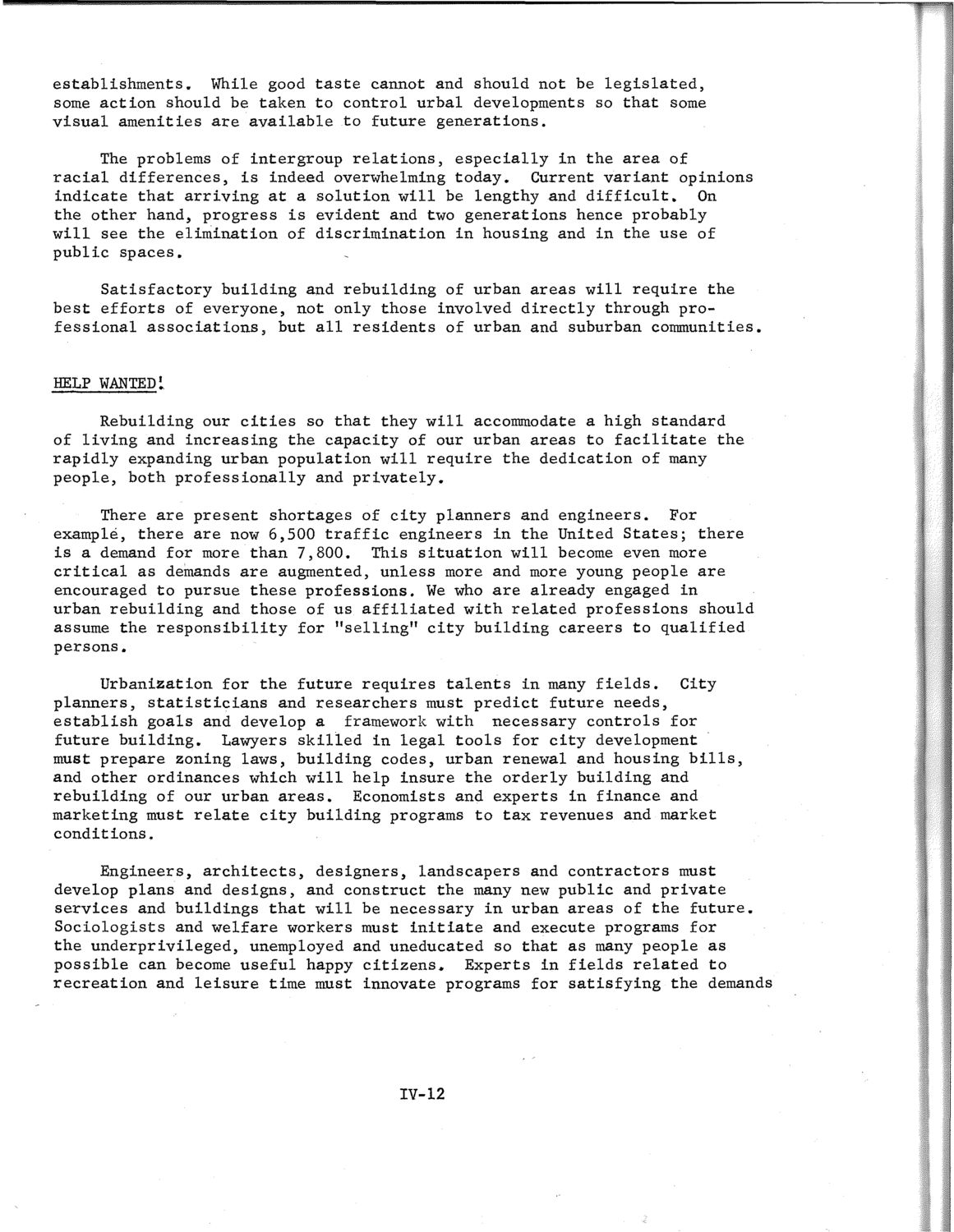| |
| |
Caption: SWE - Proceedings of the First International Conference of Women Engineers and Scientists
This is a reduced-resolution page image for fast online browsing.

EXTRACTED TEXT FROM PAGE:
establishments. While good taste cannot and should not be legislated, some action should be taken to control urbal developments so that some visual amenities are available to future generations. The problems of intergroup relations, especially in the area of racial differences, is indeed overwhelming today. Current variant opinions indicate that arriving at a solution will be lengthy and difficult. On the other hand, progress is evident and two generations hence probably will see the elimination of discrimination in housing and in the use of public spaces. Satisfactory building and rebuilding of urban areas will require the best efforts of everyone, not only those involved directly through professional associations, but all residents of urban and suburban communities. HELP WANTED'. Rebuilding our cities so that they will accommodate a high standard of living and increasing the capacity of our urban areas to facilitate the rapidly expanding urban population will require the dedication of many people, both professionally and privately. There are present shortages of city planners and engineers. For example, there are now 6,500 traffic engineers in the United States; there is a demand for more than 7,800. This situation will become even more critical as demands are augmented, unless more and more young people are encouraged to pursue these professions. We who are already engaged in urban rebuilding and those of us affiliated with related professions should assume the responsibility for "selling" city building careers to qualified persons. Urbanization for the future requires talents in many fields. City planners, statisticians and researchers must predict future needs, establish goals and develop a framework with necessary controls for future building. Lawyers skilled in legal tools for city development must prepare zoning laws, building codes, urban renewal and housing bills, and other ordinances which will help insure the orderly building and rebuilding of our urban areas. Economists and experts in finance and marketing must relate city building programs to tax revenues and market conditions. Engineers, architects, designers, landscapers and contractors must develop plans and designs, and construct the many new public and private services and buildings that will be necessary in urban areas of the future. Sociologists and welfare workers must initiate and execute programs for the underprivileged, unemployed and uneducated so that as many people as possible can become useful happy citizens. Experts in fields related to recreation and leisure time must innovate programs for satisfying the demands IV-12
| |